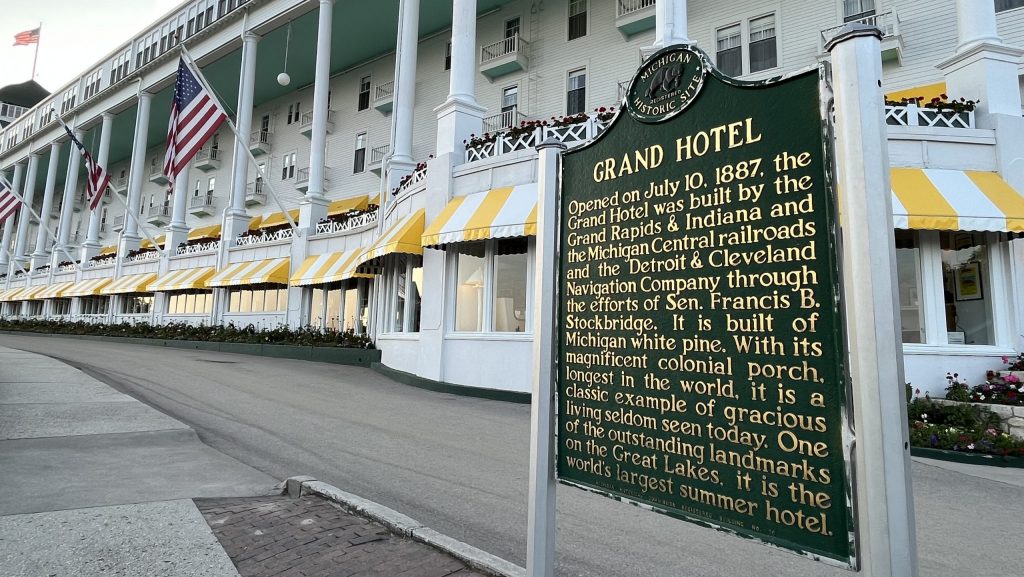Created Equal: How changing US political dynamics are impacting the Mackinac Policy Conference
Created Equal May 28, 2024For the first time in MPC history, the U.S. Senate debate was canceled because top candidates Elissa Slotkin and Mike Rogers declined invitations to participate.

A historical marker outside the Grand Hotel on Mackinac Island, Mich.
The 2024 Mackinac Policy Conference begins this week on Wednesday and goes on through Friday, May 31. A medley of community, business and political leaders are meeting inside the iconic Grand Hotel to debate on issues that impact Michigan’s economic future.
This year’s theme is “Bridging the Future Together.” It’s intended to promote respectful collaboration across political divides to improve Michigan’s outcomes. Debates will focus on key themes, including attracting businesses and jobs, improving education outcomes to ensure workforce readiness, strengthening infrastructure, and leading with innovation and equity.
Subscribe to Created Equal on Apple Podcasts, Spotify, Google Podcasts, NPR.org or wherever you get your podcasts.
However, upcoming elections are stifling opportunities for bipartisan debate at this year’s conference. For the first time in Mackinac Policy Conference history, the U.S. Senate debate was canceled because the top candidates – U.S. Rep Elissa Slotkin (D-Holly) and former congressman and Republican candidate Mike Rogers — declined to debate.
Sandy Baruah, president and CEO of the Detroit Regional Chamber, joined Created Equal host Stephen Henderson to explain why debates are less appealing than in years past.
Baruah states the nation’s changing political climate makes candidates focus more on turnout in their party’s political base — which results in politicians becoming uninterested in certain campaigning opportunities because they aren’t prioritizing appealing to voters in the middle.
Baruah also discussed the goals and missed opportunities of this year’s Mackinac Policy Conference.
Guest
Sandy Baruah is the president and CEO of the Detroit Regional Chamber of Commerce. He believes the changing political dynamics in the U.S. has led to candidates setting more conditions for campaigning.
“We are seeing the change in political dynamics where debates are getting fewer and farther between [and] harder to schedule,” Baruah said. “Candidates [are] less willing to do them [and are] setting more conditions under what they will debate. For the first time candidates [were] saying, ‘Yeah, no, we’re going to pass on the chamber’s opportunity.’ So very disappointing.”
Listen to Created Equal with host Stephen Henderson weekdays from 9-10 a.m. ET on 101.9 WDET and streaming on-demand.
Trusted, accurate, up-to-date.
WDET strives to make our journalism accessible to everyone. As a public media institution, we maintain our journalistic integrity through independent support from readers like you. If you value WDET as your source of news, music and conversation, please make a gift today.
